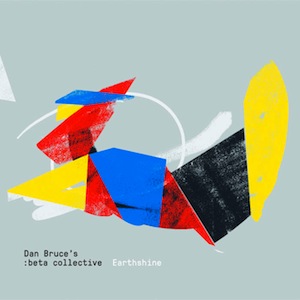Label/Year: Blue Note, 2017
Lineup – Ambrose Akinmusire: trumpet; Sam Harris: piano; Harish Raghavan: bass; Justin Brown: drums.
Trumpeter Ambrose Akinmusire has only four albums under his belt but his influence in the current jazz panorama is tremendous. A skillful composer, Akinmusire has also put a lot of his musical talent on projects of likes such as David Binney, Esperanza Spalding, Roy Hargrove, Jack DeJohnette, and Tom Harrell.
A Rift in Decorum: Live at the Village Vanguard, a double-disc quartet session that contains only original compositions, was recorded at the cited emblematic New York venue in the company of pianist Sam Harris, bassist Harish Raghavan, and drummer Justin Brown.
The disc one opens and closes with phenomenal masterstrokes. “Maurice & Michael (Sorry I Didn't Say Hello)” makes a great starting point, blooming with urgency and triumphantly demarcating the post-bop territory with stimulating clashes of color. The trumpeter speaks an attractive, modern jazz idiom, articulating his statements with exquisite intervallic engagement. Right after him, the risk-taking Harris juggles with notes and chords to produce imaginative polychromatic effects. The prominent rhythmic foundation doesn’t abstain from the freedom that becomes visible again on the closing tune, “Trumpet Sketch (Milky Pete)”, a metrically daring avant-garde shake with kinetic improvisations. The steam is constantly under pressure, especially during an unaccompanied head-to-head between trumpet and drums.
On “Response”, the title is taken seriously once the pianist responds to the trumpeter’s intro with the same melody, which overhangs on the top of his voicings. While improvising, the bandleader shows how muscular his playing can be without ever losing melodic focus.
“Moment in Between the Rest” cools the heat by conjuring up tranquil soundscapes, in a mix of sadness and contemplation. The lachrymose trumpet lines are set against cordial harmonic progressions, static bass lines, and understated brushed drumming. Even conveying a soothing effect, the tune is not devoid of a few staggering sounds.
Opening disc two, “Taymoors World” feels very close to the latter piece described, but attempting to provoke something more through impulsive rhythmic shifts interposed in an abrupt and unceremonious way.
Like a frantic locomotive, Brown put his drums to talk loud on the last pair of tunes. As extra stimulus, he counts on Raghavan’s anxious bass pedal on “Withered” and a galvanizing collective ostinato on “Umteyo”.
Even not flying so high as in the previous When the Heart Emerges Glistening and The Imagined Savior Is Far Easier to Paint, the groove and gravitas of Akinmusire’s compositions plus his tour-de-force improvisations can be enjoyed here.
Grade B+
Favorite Tracks:
01 – Maurice & Michael ► 03 – Moment in Between the Rest ►07 – Trumpet Sketch








































